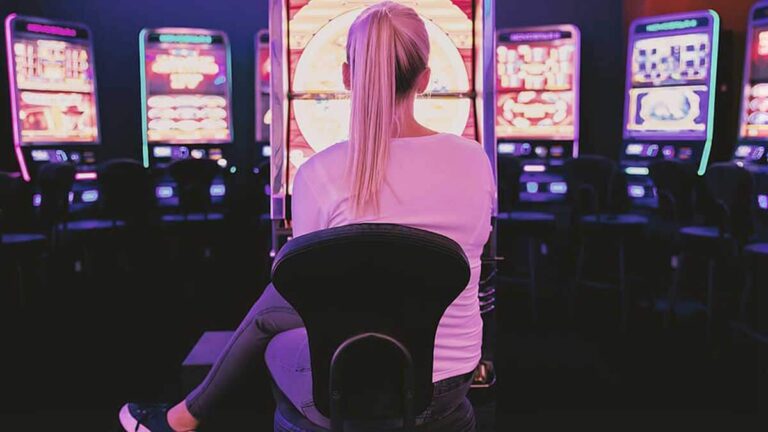Slot machines, commonly known as pokies, have been a source of fascination for decades. From their bright lights and exciting soundtracks to their ability to make or break fortunes in an instant, it’s no wonder that people around the world are so captivated by them. But what is it about these games that make them so addictive?
This article will explore the psychology of pokies and understand why they can be so hard to resist. Well look at how slot machines work, why they are popular with players, and also discuss some of the risks associated with playing these games. With this knowledge in hand, you can better decide whether playing pokies is right for you – both financially and psychologically.
The Physical/Psychological Effects of Playing Pokies
The physical and psychological effects of playing pokies are far-reaching. On a physical level, the repetitive motions associated with playing slots can cause muscle strain and fatigue. Players may find themselves in an uncomfortable or awkward position due to prolonged use of the machines. The bright lights, loud noises, and enticing visuals may also lead to the sensory overload that results in headaches or eye strain. In terms of mental health, the intense focus required by slot machines can leave players feeling anxious or stressed out.
Furthermore, while gambling is often marketed as a form of leisure activity it has been linked to depression in some players who become addicted to its reward system and experience guilt over their losses. The compulsion created by slot machines affects not only individuals but also family members who are concerned about their loved ones’ well-being when they continue to gamble beyond reasonable limits despite suffering financial difficulties as a result.
This reinforces the need for responsible gambling practices so that people understand their limitations before risking large sums of money on high-stakes games like pokies which have proven difficult for many players to resist over time.
Understanding Problem Gambling and Addiction Associated with Slot Machines

When it comes to problem gambling and addiction related to slot machines, there is much more at play than just luck. Research has demonstrated that the design of these machines can be incredibly addictive, as they are designed in such a way as to maximize player engagement and frequent rewards.
This is done by using features such as bright lights and sound effects that draw players into the machine’s experience, while also giving them quick wins or near misses which keep them playing. Additionally, the games themselves feature low cost-to-play bets with high payouts – often leading players to overestimate their chances of winning big on each spin. As a result, this combination of elements can often lead to an unhealthy relationship with these types of gaming machines for some individuals who find themselves unable to control their spending or time spent playing slot machines in pursuit of wins.
Exploring Risk Factors for Becoming Addicted to Slots
The psychological effects of playing slots and other pokies can be incredibly powerful, with the potential to lead to addiction. When exploring the risk factors for becoming addicted to slot machines, it is important to consider both internal and external influences. Internally, an individual’s personality traits may contribute to their vulnerability in developing this type of problem gambling behavior.
These include impulsivity, sensation seeking, cognitive distortions such as minimizing losses or overestimating wins, and difficulty managing negative emotions like boredom or stress. Externally, environmental factors such as access (for example being able to play online pokies real money), social networks that encourage excessive gambling, and financial pressures may also increase one’s likelihood of developing an addiction.
It is also important not just to understand why people become addicted but also how they cope with their addiction – whether through seeking help from a professional or trying different strategies such as limiting the amount spent on pokies each week or setting time limits on gaming sessions. By understanding these various facets associated with problem gambling behavior we can better equip ourselves in preventing it from occurring in the first place.
Strategies for Reducing the Harmful Impact of Pokie Play

When it comes to reducing the harmful impact of pokie play, there are a few strategies that can be employed. Firstly, one should consider setting financial limits and time limits when playing slot machines. This prevents players from overspending or spending too much time on the game.
Secondly, it is important to have realistic expectations about winning – refusing to accept losses and chasing losses are both dangerous behaviors that need to be avoided at all costs. Thirdly, players should always remember why they began playing in the first place and keep their motivations in check so as not to get carried away with gambling activities.
Lastly, having access to counseling services may help those struggling with problem gambling behavior by providing them with advice and guidance on how best to manage their addiction in a safe environment.

